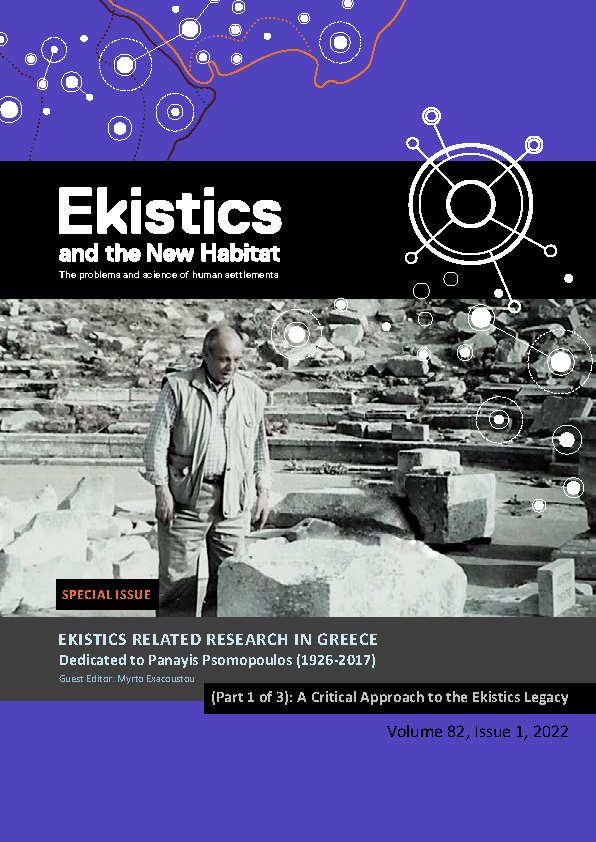Doxiadis’ Ekistics Imperative and the Paradox of Ecumenopolis
DOI:
https://doi.org/10.53910/26531313-E2022821648Keywords:
morphology, space syntax, transportation, urbanism, urban studiesAbstract
Constantinos A. Doxiadis was a leading architectural and urban theorist during the 20th century. At the dawn of the Information Age, he renewed the call for a science of human settlements, which he termed ekistics. Current debate inevitably revolves around his legacy in the field. Our paper briefly reviews Doxiadis’ thinking about settlements and science, focusing on the state of ekistic thinking today based on the case study of Metropolitan Athens and the Attica Region in Greece using space syntax. We also evaluate the inherent potentials and pitfalls of his ecumenopolis (a world city) concept, arguing that it remains too abstract and impractical of an idea for today’s world. Nonetheless, Doxiadis’ intellectual legacy is profound. We conclude that architects, urban designers, and town planners should continue to develop Doxiadis’ ideas about dynapolis (dynamic city) and entopia (in place) in addressing placemaking in cities for people today and tomorrow.
Published
Versions
- 2023-06-10 (3)
- 2023-06-07 (2)
- 2023-06-06 (1)
How to Cite
Issue
Section
Categories
License
Copyright (c) 2023 Ekistics and The New Habitat

This work is licensed under a Creative Commons Attribution-NonCommercial-NoDerivatives 4.0 International License.
Please contact the Editor-in-Chief: editor@ekisticsjournal.org, should you have any questions on copyright for your submission.
This research journal is for Educational and Knowledge development purposes.
All material published on this site complies with our copyright and terms as described by the Attribution-NonCommercial-NoDerivaties 4.0 International (CC BY-NC-ND 4.0)






